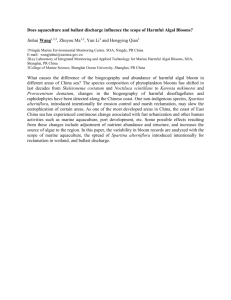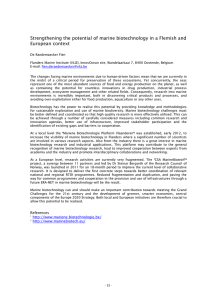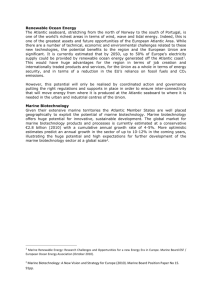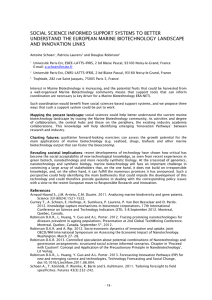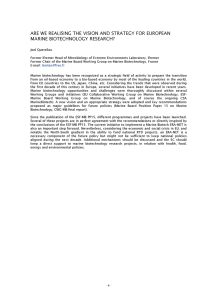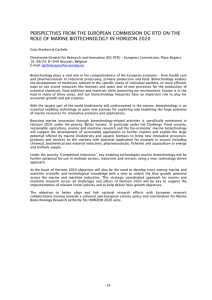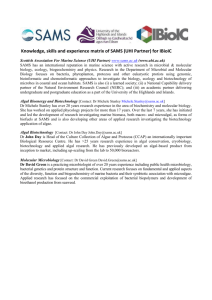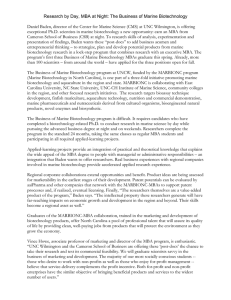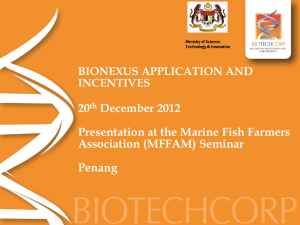The Islamic University of Gaza Department of Biology Description
advertisement
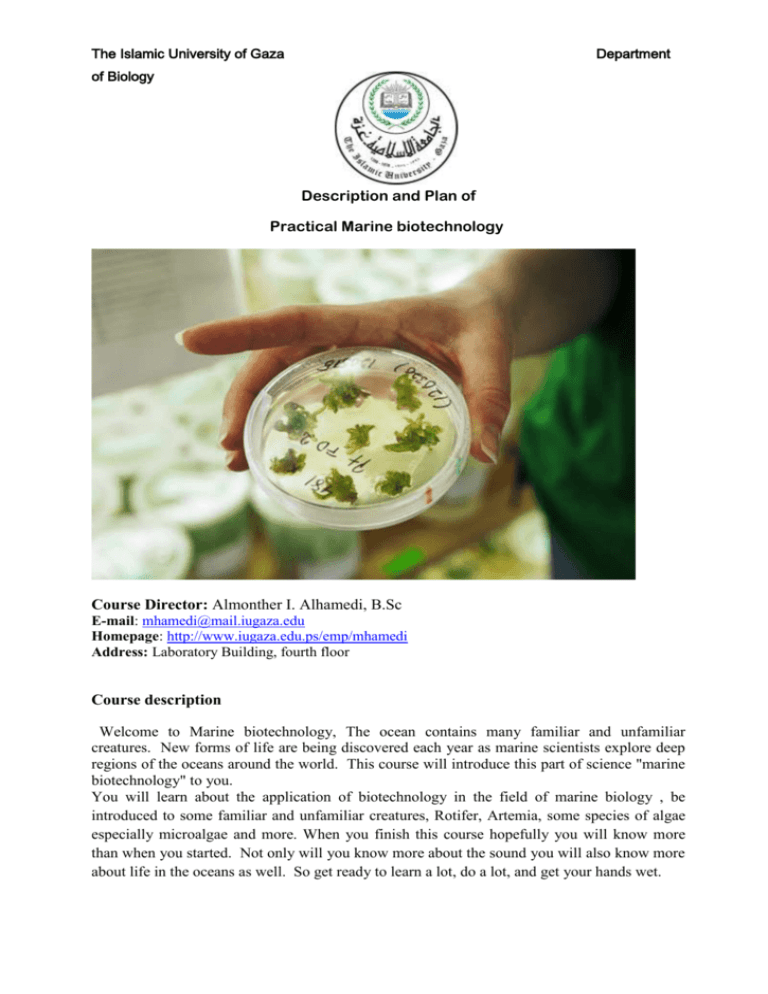
The Islamic University of Gaza Department of Biology Description and Plan of Practical Marine biotechnology Course Director: Almonther I. Alhamedi, B.Sc E-mail: mhamedi@mail.iugaza.edu Homepage: http://www.iugaza.edu.ps/emp/mhamedi Address: Laboratory Building, fourth floor Course description Welcome to Marine biotechnology, The ocean contains many familiar and unfamiliar creatures. New forms of life are being discovered each year as marine scientists explore deep regions of the oceans around the world. This course will introduce this part of science "marine biotechnology" to you. You will learn about the application of biotechnology in the field of marine biology , be introduced to some familiar and unfamiliar creatures, Rotifer, Artemia, some species of algae especially microalgae and more. When you finish this course hopefully you will know more than when you started. Not only will you know more about the sound you will also know more about life in the oceans as well. So get ready to learn a lot, do a lot, and get your hands wet. The Islamic University of Gaza Department of Biology The following schedule illustrates the topics we will cover in practical Marine invertebrates course: Lab 1 Lab 2 Lab 3 Lab 4 Lab 5 Lab 6 Lab 7 Lab 8 Lab 9 Lab 10 Course outline, Introduction to marine biotechnology. Algal Culture Media Collection and handling samples for Algal isolation Protocols for Isolation and Purification of a single Algal Species Algal Culture Methods Monitoring algal populations Production and Application of Rotifers in Aquaculture Production of the brine shrimp Artemia Preparation of the most commonly used chemicals in aquaculture process Toxicity testing Teaching Techniques Lecture and discussion about the experiment then we apply these concepts practically using tools and instruments in the laboratory, we will usevideos, microscopic and PPT slides to show sketches and photos. Course evaluation Your grade in this course will be based on the following system: Final exam Two quizzes Practical Part assessment Attendance and punctuality 60% 20 % 10% 10%
